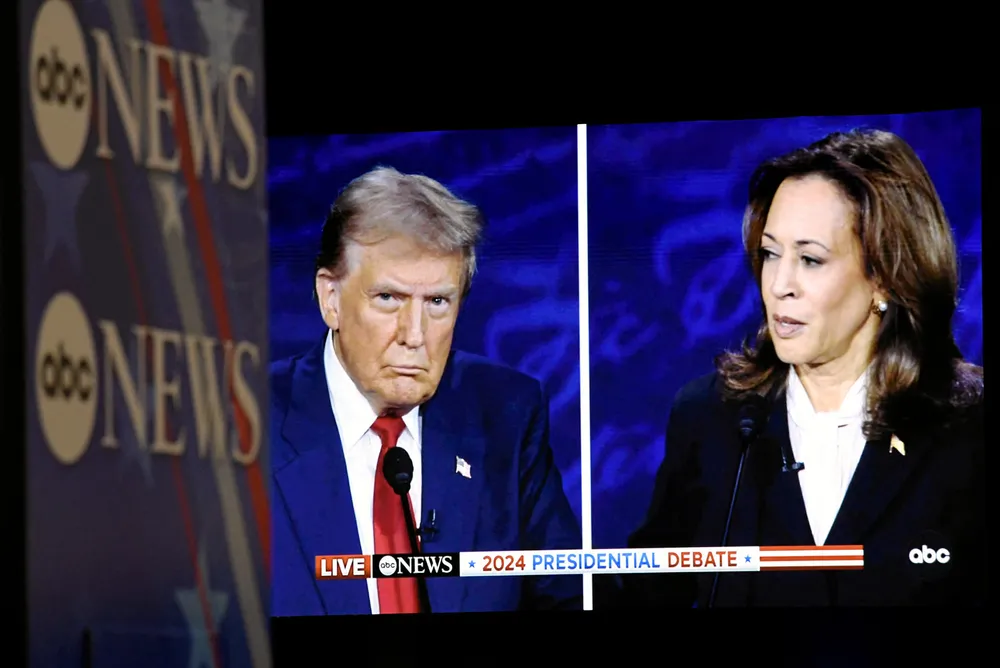Trump claims Germany has ditched green transition in Harris clash over energy
Former president makes assertion as he again takes aim at renewables while Democrat opponent flags clean energy investment record

US Presidential candidates Kamala Harris and Donald Trump clashed over energy during their eagerly awaited TV debate, with the latter claiming that Germany had abandoned its green shift “within a year” in the latest of a series of heavily disputed claims on the energy transition.
Republican candidate and former President Trump as usual namechecked wind and solar power on his list of ills unleashed on the US under Joe Biden, who current vice president Harris replaced as Democrat candidate in July.
“If she won the election, the day after that election, they'll go back to destroying our country and oil will be dead, fossil fuel will be dead. We'll go back to windmills and we'll go back to solar, where they need a whole desert to get some energy to come out,” Trump told the TV audience on Tuesday evening.
“You ever see a solar plant? By the way, I'm a big fan of solar. But they take 400, 500 acres of desert soil.”
Trump’s claim about Germany came as he accused Harris of preparing to outlaw fracking for fossil fuels, a point he used to underline his own staunch support for continued oil & gas .
“You believe in things like we're not going to frack. We're not going to take fossil fuel. We're not going to do, things that are going to make this country strong, whether you like it or not. Germany tried that and within one year they were back to building normal energy plants. We're not ready for it. We can't sacrifice our country for the sake of bad vision,” Trump said.
Germany has since adopting its ‘Energiewende’ moved decisively away from nuclear and coal, and been a global leader in shifting to wind and solar. Renewables during the first half of 2024 met a record 58% of the country's power needs, thanks to a boom in new solar installations.
For her part, Harris defended her record as part of the Biden administration saying “we have invested in clean energy to the point that we are opening up factories around the world”.
She also denied planning to ban fossil fracking: “I will not ban fracking. I have not banned fracking as vice president of the United States. And, in fact, I was the tie-breaking vote on the Inflation Reduction Act (IRA), which opened new leases for fracking.”
The outcome of the election is widely viewed as having big implications for the future of US energy policy, although commentators are divided over how much of the Biden administration’s ambitious green policy agenda a second Trump government would, or could, undo.
Energy featured as part of a wide-ranging to-and-fro between the two that was dominated by issues such as the economy, abortion and immigration. Polls before the debate put the two candidates neck and neck ahead of November’s vote.
(Copyright)